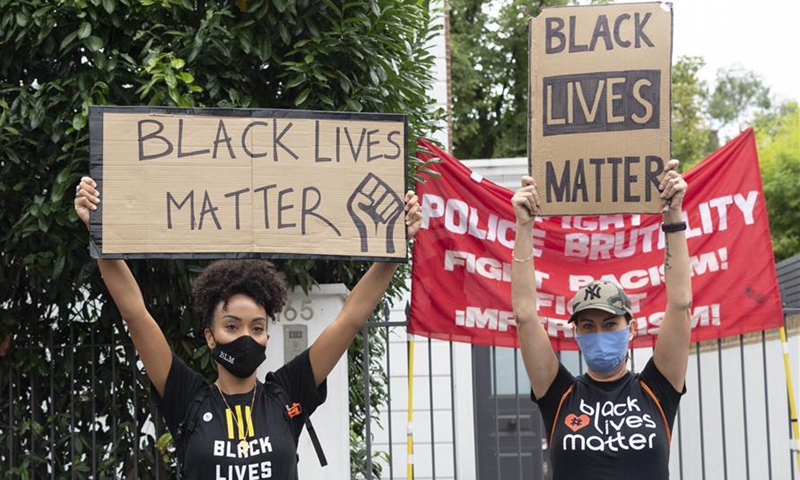London financial district asks if it should remove statues linked to slavery
Source: Reuters Published: 2020/9/1 18:43:40
The governing body in charge of London's financial district is asking for views on whether to take down statues and other landmarks with historic links to slavery and racism, as part of its response to the Black Lives Matter movement.

The memorials could be resited, reinterpreted or retained depending on the responses collected, Andrien Meyers, cochair of the City's Tackling Racism Taskforce, said. Street and building names could also be changed.
"We know that historical symbols continue to have an impact today and we want to understand how people feel about this aspect of our cultural history," Meyers said.
Statues and memorials with links to slavery and racism have been targeted globally, with some toppled by protesters and others removed by civic authorities or property owners.
Black Lives Matter protests have forced UK authorities and companies to begin reckoning with racism and the country's past links to slavery, which brought vast wealth in the 17th and 18th centuries.
The Lloyd's of London insurance market and Bank of England are among city organizations that have apologized for past links to slavery.
One city statue targeted for removal by a petition in June, which got rejected, is a huge monument to William Beckford, twice lord mayor of London in the 1760s and the largest slave owner of his time.
Newspaper headline: London district weighs moving statues related to slavery

Protesters take part in the Million People March demonstration in London, Britain, Aug. 30, 2020. Hundreds of demonstrators took to the streets of west London on Sunday in the Million People March to protest against systemic racism in the UK. Photo: Xinhua
The City of London Corporation, which runs the area that is home to some of the world's biggest banks, has launched a three-month consultation.The memorials could be resited, reinterpreted or retained depending on the responses collected, Andrien Meyers, cochair of the City's Tackling Racism Taskforce, said. Street and building names could also be changed.
"We know that historical symbols continue to have an impact today and we want to understand how people feel about this aspect of our cultural history," Meyers said.
Statues and memorials with links to slavery and racism have been targeted globally, with some toppled by protesters and others removed by civic authorities or property owners.
Black Lives Matter protests have forced UK authorities and companies to begin reckoning with racism and the country's past links to slavery, which brought vast wealth in the 17th and 18th centuries.
The Lloyd's of London insurance market and Bank of England are among city organizations that have apologized for past links to slavery.
One city statue targeted for removal by a petition in June, which got rejected, is a huge monument to William Beckford, twice lord mayor of London in the 1760s and the largest slave owner of his time.
Newspaper headline: London district weighs moving statues related to slavery
Posted in: EUROPE